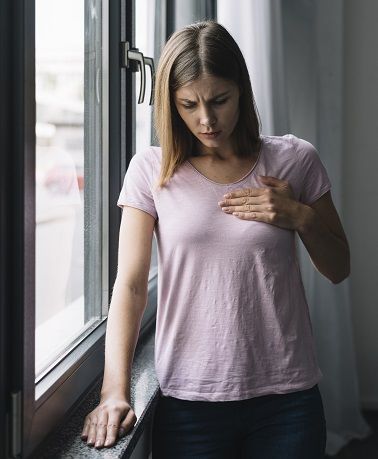 A biofilm is a group of bacteria that can adhere to a breast implant’s surface through the formation of a slimy glue-like substance. The formation of these biofilms around an implant may link with subclinical infections, capsular contracture, and other systemic symptoms.
A biofilm is a group of bacteria that can adhere to a breast implant’s surface through the formation of a slimy glue-like substance. The formation of these biofilms around an implant may link with subclinical infections, capsular contracture, and other systemic symptoms.
Signs & How to Detect Biofilm on Breast Implants
It is not always evident if a biofilm is present around a breast implant. Patients may have subtle signs of pain, breast distortion, and other subtle symptoms (e.g., feeling tired all the time).
Unfortunately, there are no blood or imaging tests that can diagnose whether a biofilm has developed around breast implants or not. The breast implant may feel firmer than expected on physical exam, or the breast may be visibly distorted. Diagnosis is made by physical exam, your symptoms, and whether the symptoms have improved with other medical treatment forms.
Risks of Bacterial Biofilm on Breast Implants
Biofilms allow the bacteria to survive on the breast implant surface and provide a barrier against antibiotics. Biofilms can cause an acute infection, but they can rarely cause an immediate problem.
Over time, however, biofilms have been linked to the following:
- Formation of Capsular Contracture – A significant tightening of the connective tissue that usually forms around a breast implant
- Breast Distortion
- Anaplastic Large Cell Lymphoma (ALCL) – Usually, in connection with textured breast implants
- A variety of Other systemic Symptoms – Fatigue, Malaise, Chronic Inflammation
Will it Spread to the Unaffected Breast?
It is unlikely that biofilm could spread to an unaffected breast. A biofilm usually forms when the implant is exposed to bacteria when the implant was initially placed.
Treating the Affected Breast Implants
At this time, there are no medications that can eliminate a biofilm after it has formed. The slimy part of the biofilm forms a protective barrier around the bacteria, making it difficult for any medications to penetrate the barrier.
However, when we suspect that a biofilm has formed around your implant and it is causing your symptoms, we recommend the total removal of the implant with the entire capsule. Depending on your symptoms, we may also prescribe antibiotics after the procedure.
Learn More About Breast Implant Removal
Breast Implant Removal in Ohio Schedule A Consultation
Preventing the Risk of Bacterial Biofilm Formation
Biofilms usually form when implants are exposed to bacteria at the time of the initial placement. These bacteria can come from the environment, a patient’s skin, or breast tissue. The best way to prevent biofilm formation is to keep the implant away from being exposed to bacteria and avoid using implants where bacteria can easily adhere.
Here are a few things we do to prevent the implants from bacteria:
| Complete Pathologic Analysis | The capsule is looked at in great detail with a microscope. |
| Microbiologic Analysis | The capsule is examined for the presence of bacteria. |
| Cytology (in some cases) | Advanced study to look at specific characteristics of cells within and around the capsule. |

Comments are closed here.